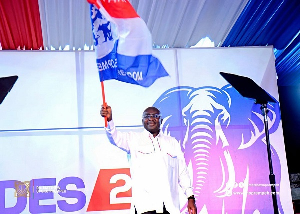The Vehicle and Asset Dealers Association of Ghana (VADAG), the Coalition of Economic Associations of Ghana and the Coalition of Social Justice have planned a demonstration for 9 July 2019 to compel the government to scrap the luxury car levy.
VADAG earlier petitioned the Office of the President, Parliament and the Ministry of Finance about the levy but their efforts yielded no result.
The group pointed out that follow-up letters to the Finance Ministry have not received the needed attention hence the decision to stage a demonstration.
The implementation of the law took effect from Wednesday, 1 August 2018.
Vehicles with an engine capacity of two thousand, nine hundred and fifty (2950) Cubic Centimetres and more are required to pay respective levies.
A publication available on the website of the Minister of Finance which was released on 31 July 2019 said the Driver and Vehicle Licensing Authority (DVLA) is authorised by the law to collect the levy on behalf of the government.
Vehicles with engine capacity of 2950cc – 3549cc will pay GHS1,000, the levy for those with a capacity of 3550cc – 4049cc is GHS1,500 while engines above 4049cc will pay GHS2,000.
The levy is to be paid on the registration of vehicles and subsequently on or before the annual renewal of the roadworthy certificate of such vehicles.
However, addressing a press conference on Wednesday, 26 July 2019, the General Secretary of VADAG, Clifford Ansu, said the levy is a ripoff of car dealers.
He said pickups and trucks cannot be described as luxury vehicles.
The group wants the levy scrapped.
Mr Ansu said the imposition of the levy is “so detrimental to the vehicle industry such that people have discarded the idea of buying or owning vehicles” while “some owners of these vehicles are resorting to ‘Goro’ boys at the premises of DVLA for fake and fictitious roadworthy certificates just to drive around”, thus, “denying the government the purpose this policy seeks to achieve”.
He said the situation has also affected spare parts dealers as the sale of replaceable parts of the vehicles listed under the policy have recorded low sales.
Business News of Wednesday, 26 June 2019
Source: classfmonline.com













